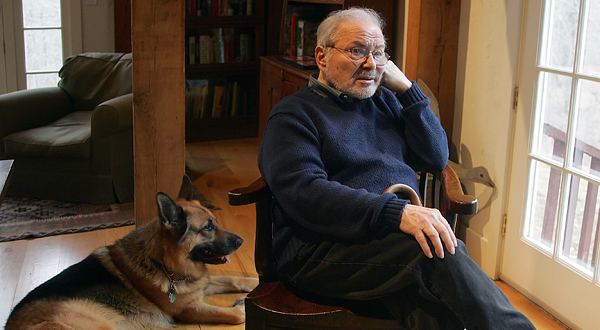 http://www.nytimes.com/2012/05/09/books/maurice-sendak-childrens-author-dies-at-83.html?hp
http://www.nytimes.com/2012/05/09/books/maurice-sendak-childrens-author-dies-at-83.html?hp
He was larger than life and twice as natural.
Over a decade ago, Maurice Sendak came to Harvard to see the Emily Dickinson Room at Houghton Library, to read Keats’s manuscripts, and to give a lecture to the students in my course on childhood. He referred to himself then as a “dinosaur” and worried about the decline in the quality of children’s books, though he conceded that he might also just be a “grumpy old man.” Over lunch, he was anything but, and, despite his stated aversion to signing books, he generously illustrated and signed title pages of all the books that the students had brought to class. I always referred to his visit as a golden afternoon.
What he loved, others will love, and he showed us how. When I think of Sendak, my first associations are to Mozart, Kleist, Melville, and Runge, the creative geniuses he loved and from whom he learned his art. Who else could illustrate Penthesilea or Pierre? In his talk at Harvard, he explained that his success as an author enabled him to work on projects that he did for love and that always lost money.
I love the photograph used by the NYT because there is Herman, one of the many dogs Sendak cared for, along with books and a reading chair. Sendak was introspective by nature, but, there he is, gazing out the window at the beauties of nature. I am sure that Mozart’s music is playing in the background. The photograph is a preview of his heaven.
Margalit Fox writes, in the NYT obituary: He was also a mentor to a generation of younger writers and illustrators for children, several of whom, including Arthur Yorinks, Richard Egielski and Paul O. Zelinsky, went on to prominent careers of their own.
And Brian Selznik also belongs on that list. His breakthrough came when Sendak told him: “Make the book you want to make.” What followed was an apprenticeship with Sendak (without Sendak being aware of it) and The Invention of Hugo Cabret.
Maybe Keats was not so wrong about truth and beauty.
[…] Tatar, “In the Dumps.”Breezes from Wonderland, 8 May […]
Wow, I’m an undergraduate now studying children’s literature and I wish I could have been in your class that day, what an amazing experience! I love the descriptions in your post above, thanks for sharing your memories.